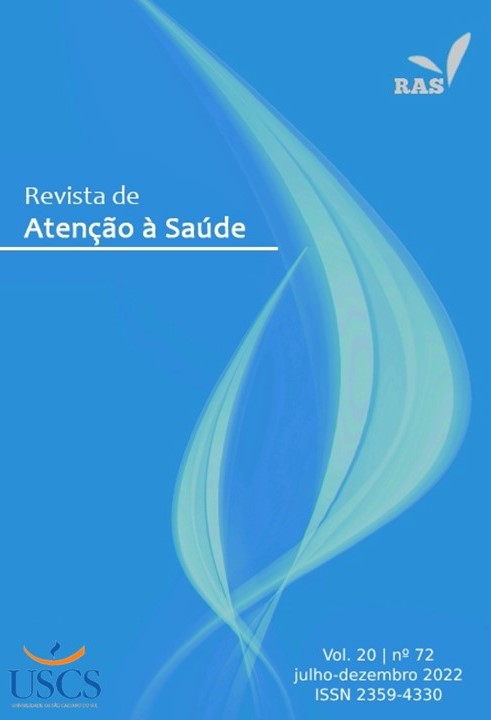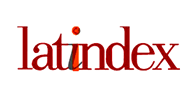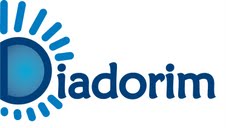Working process of the community health workers in vulnerability areas
Working process of the community health workers
DOI:
https://doi.org/10.13037/2359-4330.8456Keywords:
Family Health Strategy, Community Health Workers, Health vulnerabilityAbstract
Introduction: The Community Health Agents act by promoting dialogue between the health needs of the community and the Family Health Strategy. This context, or work process of these professionals, is directly related to the dimensions of the territory and its vulnerabilities. Objectives: to understand the work process of Community Health Agents in territories of vulnerability enrolled in the Family Health Strategy. Materials and Methods: This is a qualitative study, subsiated by the theoretical framework of health vulnerabilities, conducted with 11 Community Health Agents, who worked in a vulnerable area located in the central region of Ceará, northeastern Brazil. Data were collected through semi-structured interviews, containing the work process. Results: Three thematic categories emerged representing the dimensions of health vulnerability, which address the main topics discussed by the participants: (1) "We are the link between people and the health center": the relationship of the Community Health Agent with the community (2) "You expose yourself": the Community Health Agent and its working conditions; 3) "Blind, deaf and dumb": the community health agent in the face of violence and drug trafficking in the community. Conclusion: The work process of the Community Health Agent in territories of vulnerability was affected in the individual, social and programmatic dimensions.
Downloads
References
Filgueiras AS, Silva ALA. Agente Comunitário de Saúde: um novo ator no cenário da saúde do Brasil. Physis (Rio J.). 2011; 21(3): 899-903.
Lima EMFA, Yasui S. Territórios e sentidos: espaço, cultura, subjetividade e cuidado na atenção psicossocial. Saúde debate. 2014; 38(102): 593-606.
Ayres JR de CM, Calazans GJ, Saletti Filho HC, Franca Junior I. Risco, vulnerabilidade e práticas de prevenção e promoção da saúde. In: Tratado de saúde coletiva. São Paulo: Hucitec/ Fiocruz; 2009.
Neves, CAB. Manual de práticas da atenção básica: saúde ampliada e compartilhada. Cad. saúde pública. 2011; 27(4): 817-819.
Almeida MCS, Baptista PCP, Silva A. Workloads and strain process in Community Health Agents. Rev. Esc. Enferm. USP. 2016; 50(1): 93-100.
Simas PRP, Pinto ICM. Trabalho em saúde: retrato dos agentes comunitários de saúde da região Nordeste do Brasil. Ciênc. Saúde Colet. 2017; 22(6): 1865-1876.
Avila MMM. O programa de Agentes Comunitários de Saúde no Ceará: o caso de Uruburetama. Ciênc. Saúde Colet. 2011; 16(1):349-360.
Almeida JF, Peres MFT, Lima TF. A violência no território e a construção de vínculos entre os agentes comunitários de saúde e os usuários em um serviço de atenção primária. Rev. Epos. 2016; 7(1):92-109.
Minayo MCS. O desafio do conhecimento: pesquisa qualitativa em saúde. 12ª ed. São Paulo: Hucitec; 2010.
Souza CD, Baggio L, Wachs F. O trabalho do agente comunitário de saúde na perspectiva da educação popular em saúde: possibilidades e desafios. Ciênc. Saúde Colet. 2016; 21(5):1637-1646.
Maia ER, Pagliuca LMF, Almeida SB, Oliveira WR. Competências do agente comunitário de saúde junto à pessoa com deficiência: análise documental. Rev. enferm. UERJ. 2009; 17(4): 485-490.
Nascimento GM, David HMSL. Avaliação de riscos no trabalho dos agentes comunitários de saúde: um processo participativo. Rev. enferm. UERJ. 2008; 16(4):550-556.
Alonso CMC, Béguin PD, Duarte FJCM. Trabalho dos agentes comunitários de saúde na Estratégia Saúde da Família: metassíntese. Rev. saúde pública. 2018; 52:14.
Costa SM, Araújo FF, Martins LV, Nobre LLR, Araújo FM, Rodrigues CAQ. Agente Comunitário de Saúde: elemento nuclear das ações em saúde. Ciênc. Saúde Colet. 2013; 18(7):2147-2156.
Oliveira AR, Chaves AEP, Nogueira JA, Sá LDS, Collet N. Satisfação e limitação no cotidiano de trabalho do agente comunitário de saúde. Rev. eletrônica enferm. 2010; 12(1): 28-36.
Santana JCB, Vasconcelos AL, Martins CV, Barros JV, Soares JM, Dutra BS. Agente comunitário de saúde: percepções na estratégia saúde da família. Cogit. Enferm. (Online). 2009;14 (4):645-52.
Gomes MF, Lima ASR, Feitosa LS, Pontes VBN, Nascimento RD, Andrade MS. Riscos e agravos ocupacionais: percepções dos agentes comunitários de saúde. Rev. Pesqui. (Univ. Fed. Estado Rio J., Online). 2015; 7(4): 3574-3586.
Fonseca FF, Costa FM, Lima CA, Silva SSS, Alves JP, Carneiro JA. Caracterização do risco ocupacional entre trabalhadores da Estratégia Saúde da Família. Rev. bras. pesqui. saúde. 2015;17(2): 89-97.
Turci MA, Lima-Costa MF, Macinko J. Influência de fatores estruturais e organizacionais no desempenho da atenção primária à saúde em Belo Horizonte, Minas Gerais, Brasil, na avaliação de gestores e enfermeiros. Cad. saúde pública. 2015; 31(9): 1941-1952.
Malta DC, Minayo MCS, Soares Filho AM, Silva MMAS, Montenegro MMS, Ladeira RM et. al. Mortalidade e anos de vida perdidos por violências interpessoais e autoprovocadas no Brasil e Estados: análise das estimativas do Estudo Carga Global de Doença, 1990 e 2015. Rev. bras. epidemiol. 2017; 20(supl 1): 142-156.
Sawaya AL, Albuquerque MP, Domene SMA. Violência em favelas e saúde. Estud. av. 2018; 32(93):243-250.
Santos MS, Silva JG, Branco JGO. O enfrentamento à violência no âmbito da estratégia saúde da família: desafios para a atenção em saúde. Rev. bras. educ. méd. 2017; 30(2):229-238.
Benicio LFS, Barros JPP. Estratégia saúde da família e violência urbana: abordagens e práticas sociais em questão. Sanare (Sobral, Online). 2017; 16(supl 1):102-112.
Garbin CAS, Dias IA, Rovida TAS, Garbin AJI. Desafios do profissional de saúde na notificação da violência: obrigatoriedade, efetivação e encaminhamento. Ciênc. Saúde Colet. 2015; 20(6):1879-1890
Downloads
Published
Issue
Section
License
Copyright (c) 2023 Vanda Nayara Costa da Silveira, Rayane Moreira de Alencar, Jameson Moreira Belém, Camila de Araújo Carrilho, Evanira Rodrigues Maia

This work is licensed under a Creative Commons Attribution-NonCommercial-NoDerivatives 4.0 International License.
Policy Proposal for Journals offering Free Delayed Access
Authors who publish in this magazine agree to the following terms:
- Authors maintain the copyright and grant the journal the right to the first publication, with the work simultaneously licensed under a Creative Commons Attribution License after publication, allowing the sharing of the work with recognition of the authorship of the work and initial publication in this journal.
- Authors are authorized to assume additional contracts separately, for non-exclusive distribution of the version of the work published in this magazine (eg, publishing in institutional repository or as a book chapter), with the acknowledgment of the authorship and initial publication in this journal.
- Authors are allowed and encouraged to publish and distribute their work online (eg in institutional repositories or on their personal page) at any point before or during the editorial process, as this can generate productive changes, as well as increase impact and citation of the published work (See The Effect of Open Access).









